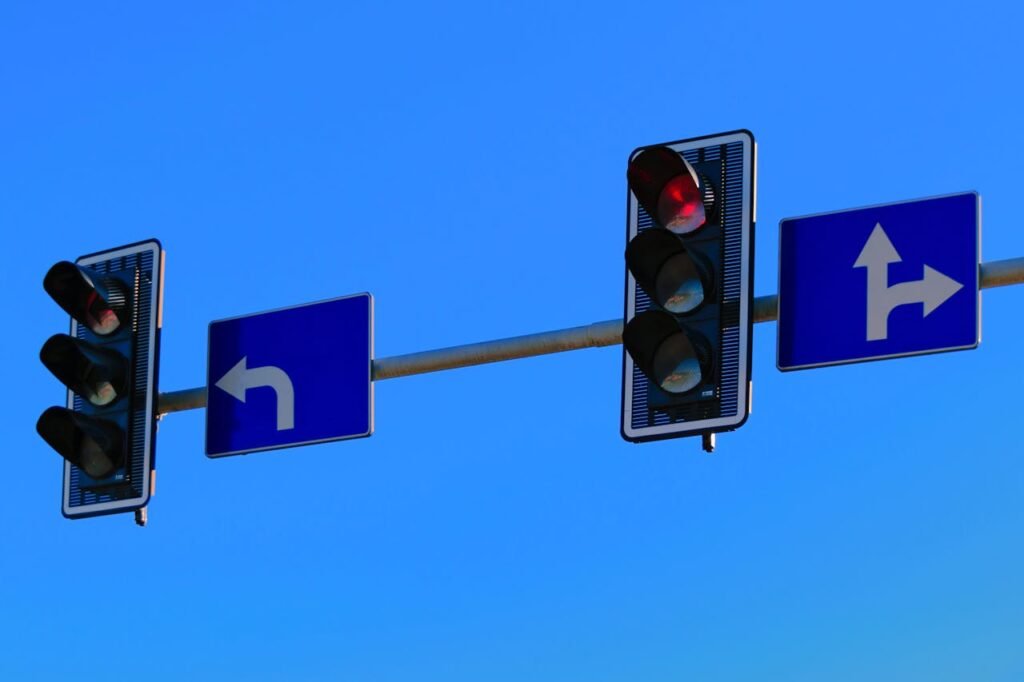Germany is a highly developed nation, a beacon of progress and modernity. The laws here are not just rules but a testament to the country’s commitment to order and discipline. Among these, the meticulously crafted traffic laws stand out, reflecting the government’s unwavering dedication to preventing traffic accidents. It is imperative for every citizen to adhere strictly to these laws.
Germany boasts an impressive 4.6 million registered vehicles. In comparison to other European nations, Germany’s traffic accident rate is remarkably low. When considering accident statistics, Germany ranks just after the UK and the Netherlands, making it one of the safest countries in terms of road safety.
Non-compliance with traffic laws invites stringent penalties. Therefore, if you are planning to visit Germany, familiarizing yourself with its laws is essential. Ignorance can lead to unforeseen troubles, and no tourist would want to face legal issues during their visit. Thus, in this article, we will delve into the various traffic rules that one must observe in Germany, ensuring a smooth and enjoyable travel experience.
Some Important Rules for Driving in Germany
The regulations for foreign citizens are largely akin to those for local residents. However, there are distinct rules tailored for foreigners. For example, if a foreign citizen violates any rules, they are immediately fined, and a penalty notice is dispatched to their home country. Additionally, their driving license may also be revoked. Below, we will delve into some of Germany’s driving rules that apply universally to every citizen of the country.
Speed Limits
In Germany, many roads lack a posted speed limit. On such roads, drivers can travel at a speed that suits them. However, if the speed gets out of control, fines will be imposed.
– Urban areas: 50 km/h
– Highways: 130 km/h
– Main roads: 100 km/h
Additionally, in foggy conditions, the speed limit must be maintained at 50 km/h. Exceeding the speed limit can result in fines ranging from 50 euros to 650 euros.
Right Sided Driving
On two-lane roads in Germany, vehicles customarily travel on the right side, mirroring the practice in other European countries. This contrasts with the system in South Asian nations, where the opposite is true. Consequently, many individuals from these regions often make this error.
Road Signs
While navigating the roads in Germany, you will encounter various road signs in German. Some of the essential signs include:
– Einfahrt – which means entrance
– Ausfahrt – which means exit
– Schnee – which means snow
– Einbahnstraße – which means one-way street
– Zebrastreifen – which means pedestrian crossing
– Polizei Halt – which means police stop
– Nebel – which means fog
– Unfall – which means accident
– Stau – which means traffic
Traffic Lights
The traffic light system in Germany operates just like in other countries, with no deviations. It employs three distinct lights: red, yellow, and green. At railway crossings, a red flashing light is commonly used. When this light is illuminated, drivers must wait until the train has completely passed before proceeding.
Childs Safety
In Germany, child safety in traffic regulations is treated with the utmost seriousness. Here are some key rules:
– Children under the age of 3 are required to travel in a child seat.
– Children aged 3 to 12, who are shorter than 150 cm, must use a booster seat.
– A standard seat belt must be provided for children.
Parking
Understanding parking regulations is essential. In Germany, any vehicle stationary for 3 minutes is considered to be parked. The parking regulations in Germany are as follows:
– Parking is prohibited within 10 meters of a traffic light.
– Parking in bike lanes is strictly forbidden.
– Parking is not allowed within 15 meters of a bus stop.
– Parking is prohibited within 5 meters of a pedestrian crossing.
– Furthermore, parking in areas marked as “parking prohibited” will result in a fine.
Equipment for Safety
There are certain pieces of equipment that you must always carry with you. Failing to have these items could result in a fine:
– A warning triangle
– Safety jackets
– Helmets if riding a motorbike
– Beam deflectors
– A first aid kit
– Essential documents: driving license, passport, proof of insurance, and V5C certificate
Other Regulations
In addition to the aforementioned rules, there are further regulations to consider, ensuring that you do not encounter any difficulties during your stay in Germany.
Regulations for overtaking
On a two-lane road, a vehicle is permitted to overtake only two-wheeled bikes. Overtaking four-wheeled vehicles will result in a fine. However, on roads with more than two lanes, overtaking four-wheeled vehicles is allowed. It is essential to make overtaking decisions based on the overtaking signs.
Regulations for Impaired Drivers
Driving under the influence of alcohol is deemed a serious offense. Should the police suspect that you have consumed alcohol, they are obligated to conduct a blood test. If the blood alcohol level exceeds 0.05%, you will face legal consequences. For novice drivers and those under the age of 21, a strict alcohol level of 0% is required. Germany enforces a zero tolerance policy in this regard.
Regulations for Cyclists and Pedestrians
Cyclists and pedestrians are also required to adhere to traffic regulations. Cyclists who breach these rules may face fines of up to 65 euros. Conversely, pedestrians who violate traffic rules, such as attempting to cross the road at a red light, will incur a fine of 5 euros.
Regulations for Mobile Phone Use
Using a mobile phone while driving is strictly forbidden. Failure to comply with this rule may result in the revocation of your driving license and the imposition of a fine. It is essential to remain vigilant regarding such regulations.
Regulations for Misbehavior with an Officer
Misbehaving with an officer is considered a grave offense. This could result in a fine and, depending on the severity of the misbehavior, possible imprisonment. Typically, fines for such misconduct range from 50 euros to 1000 euros.


